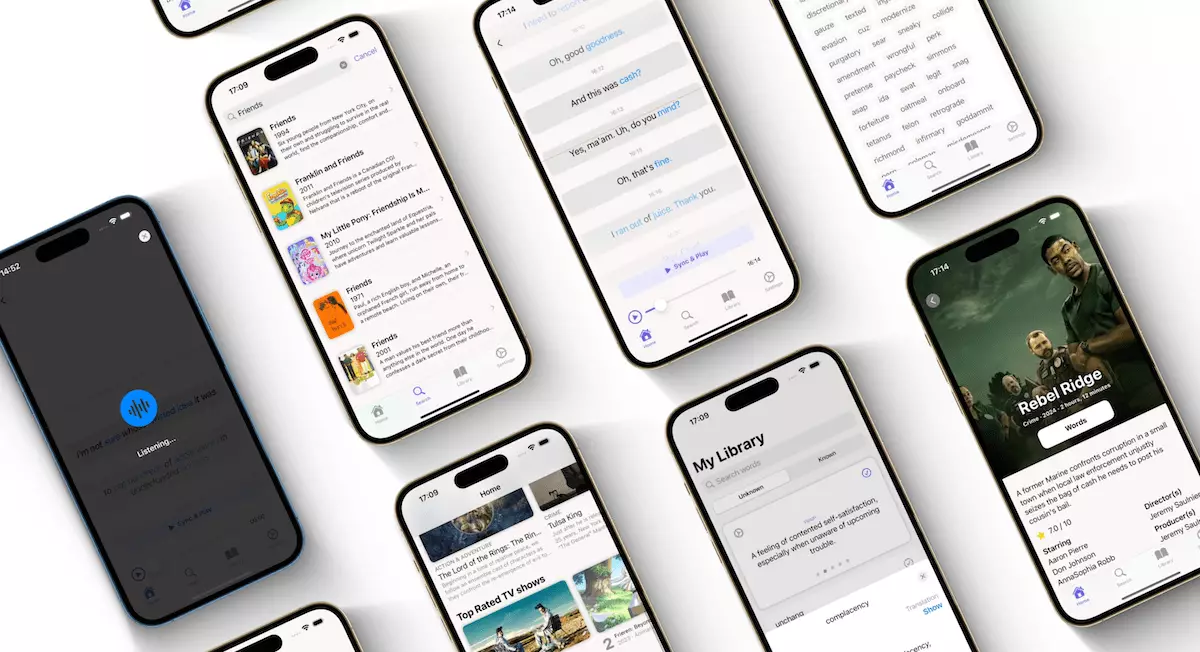In the ever-evolving landscape of language learning, the advent of technology has paved the way for new methods that cater to the needs of learners across the globe. One of the latest innovations in this domain is Wordy, an iOS application designed to enhance the English learning experience through immersive media. This app takes the traditional language learning approach and combines it with the fun of watching movies and TV shows, effectively transforming passive viewing into a productive learning session.
Wordy is the brainchild of Sándor Bogyó, a 23-year-old indie developer hailing from Budapest. His journey to create this app was spurred by a common dilemma faced by many language learners: the challenge of grasping unfamiliar words and phrases while enjoying English-speaking media. Frustrated with the interruptions caused by frequently pausing to examine translations, Bogyó sought inspiration from his previous work with Language Reactor, a Chrome extension designed for similar purposes. Recognizing a gap in the mobile market, he envisioned an application that would seamlessly integrate into the viewing experience, thus giving birth to Wordy.
One of the standout features of Wordy is its impressive library, boasting over 500,000 titles, including critically acclaimed series from platforms like HBO and Disney+. This vast selection ensures that users can engage with content they love while developing their language skills. By simply selecting an episode, users can access a wealth of vocabulary tailored to their proficiency levels, making the app adaptable for learners at various stages of their English journey.
The app’s functionality is a testament to modern AI integration in education. Upon selecting a show, Wordy employs a sophisticated combination of AI models to analyze subtitles and audio simultaneously. Using the microphone on the user’s device, the app listens in on the show and precisely identifies spoken sentences. This enables Wordy to scroll through the transcript in real-time, highlighting words that may be challenging for learners. For example, during a recent testing session while watching Netflix’s “Wednesday,” we encountered terms such as “plagued” and “nefarious,” effectively demonstrating the app’s capability to present complex vocabulary within context.
Additionally, Wordy offers a summary page for each episode, categorizing words by difficulty. This feature not only aids in comprehension but also provides a structured way to track progress. Users can save unfamiliar words to a personal library for later revision, turning the app into a comprehensive study tool rather than a mere translation resource.
While Wordy excels in many aspects, one limitation currently is its exclusive focus on the English language. Competitors like Language Reactor provide support for multiple languages, making them accessible to a broader audience. However, Bogyó has addressed this concern, affirming that he prioritizes quality and accuracy over rapid scalability. He is committed to expanding the app’s language offerings, ensuring that each integration meets high standards before release.
In terms of pricing, Wordy is positioned affordably at $2.99 per month or $29.99 for an annual subscription. This pricing strategy reflects Bogyó’s desire to make language learning accessible without sacrificing the quality of the user experience.
As the world becomes increasingly interconnected, the platforms we use for learning must evolve to keep pace with the needs of learners. Wordy stands as a promising solution for those looking to enhance their English language skills through familiar and enjoyable means. Its unique approach, combined with powerful technology and a wealth of content, positions it as a significant player in the language learning space. By bridging the gap between entertainment and education, Wordy encourages a new generation of learners to embrace the complexities of the English language in a way that feels intuitive and engaging. Ultimately, it invites us to consider how we can utilize the resources at our disposal to make learning languages an enjoyable journey rather than a daunting task.

